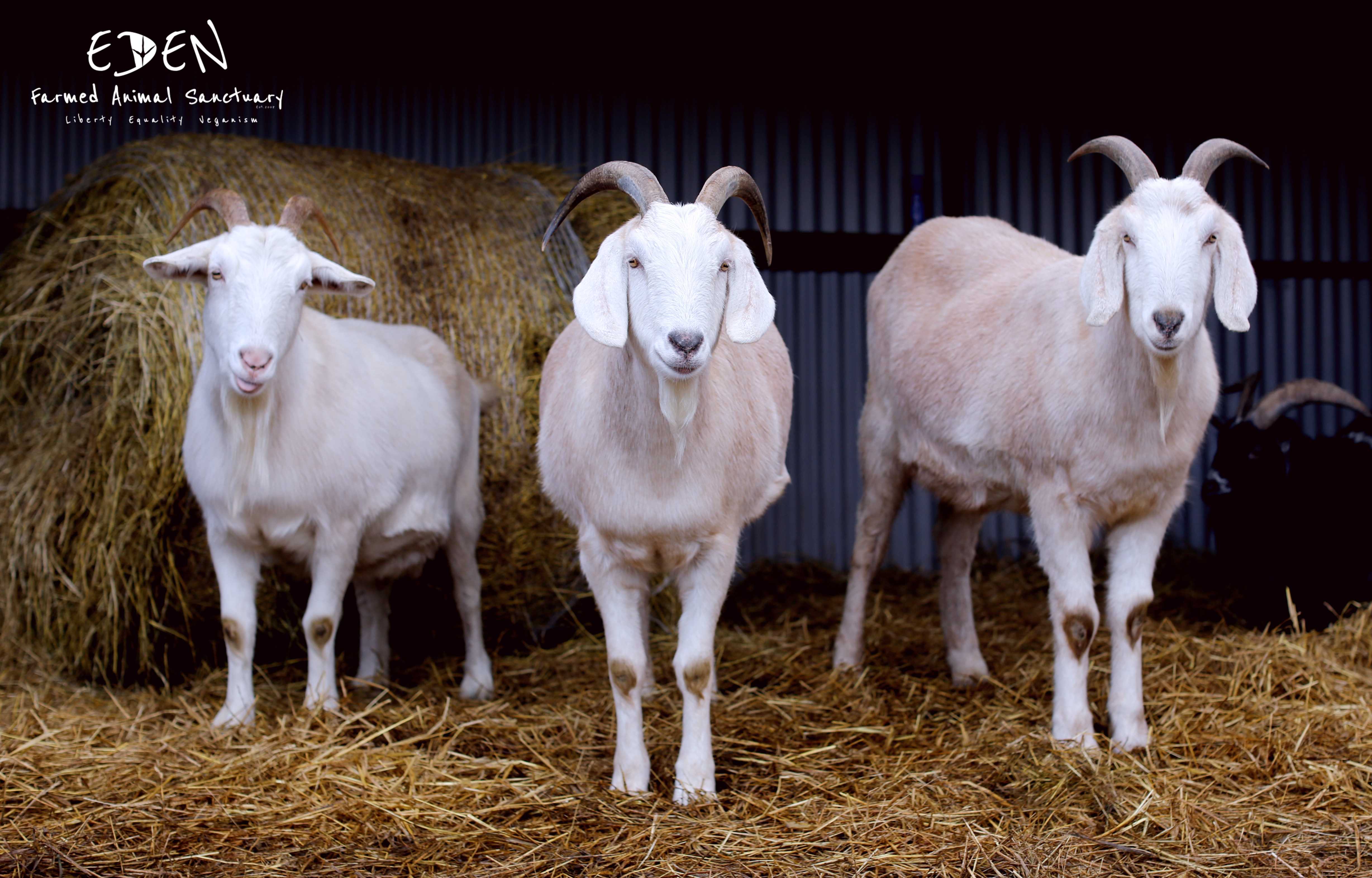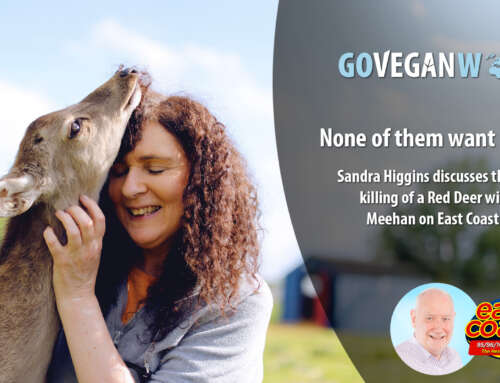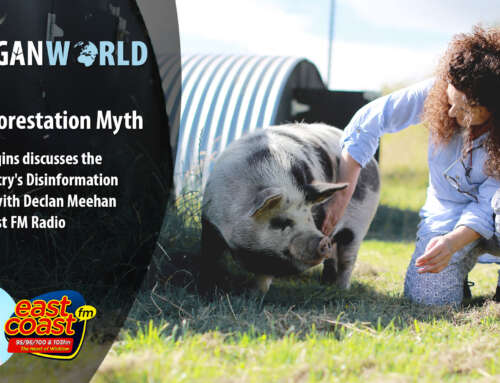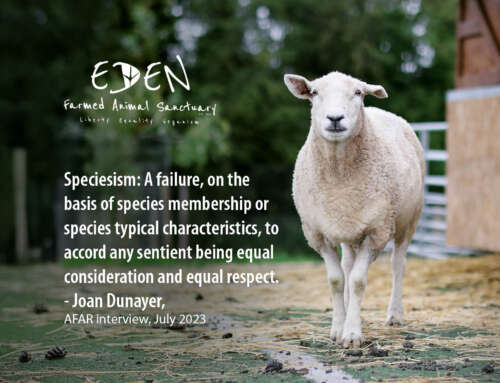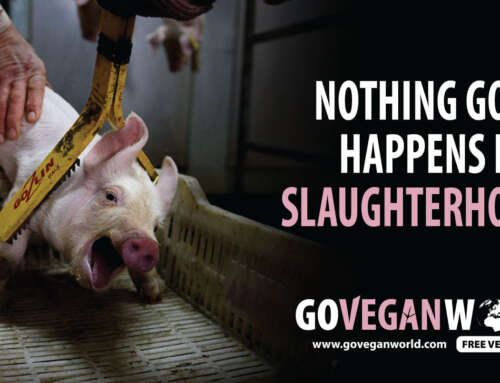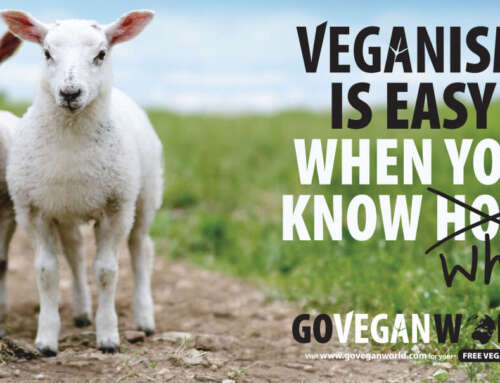When I first ran Go Vegan World in Ireland in 2015 I found myself describing to a journalist how the process of Artificial Insemination conducted in the animal flesh and dairy industries, is such a rights violation of that animal that if the same process were done to a human we could refer to it as rape. My statement was and is true. The shock of his reaction was palpable, even in a telephone conversation.
He believed that human victims of rape would find the comparison insulting. I immediately offered to withdraw my use of the word for fear of harming anyone unfortunate enough to have been victim of this appalling and violent crime. But that is not how the media works. It was too late and the journalist chose to disregard his stated concerns for human survivors of rape and my statement went into print.
As the publicity around Go Vegan Ireland built in the following weeks, I regretted referring to the process of AI as rape and no longer do so. My reason is that the media immediately picked up on the term and used it as a hook to hang the campaign on, referring to it, and to me as an activist, as extreme. The media focus on this word was used as a tool to ridicule the campaign with the result that many of the other animal rights violations that the campaign attempted to highlight and its efforts to educate the public about speciesism, were somewhat compromised.
As an activist, the last thing I want to do is compromise the very thing I am striving to attain – an acceptance by the public that other animals have rights and that unless we are vegan, we violate those rights. The last thing I want to do is alienate potential vegans by using words that can be misunderstood or perceived as offensive.
Our sense of justice frequently leads to outrage when we witness the rights violations that are standard in order to convert sentient beings into objects for human use. Our concomitant emotional response of grief, helplessness, and anger can feel overwhelming. In our efforts to convey our understanding to the non-vegan public, it can be tempting to focus on the worst aspects of animal use instead of standard, legal practice, and to use words that we hope will encourage people to empathise with how humans would feel if we used each other as we use other animals.
Good activists reflexively tune into their own thoughts and feelings. But they give equal attention to the public they are educating and the purpose of their activism.
We need to attend not only to ourselves but to the outcome we want (animal rights) and how we can best achieve that. This is one of the ways in which our activism is not about us: it is about how we use ourselves in service of the rights of others.
In hindsight I believe that using the word rape was not an effective tactic. The process of AI is an abominable violation and violent intrusion on, and control of, the sexual and reproductive parts of other animals’ bodies, and their very personhood. However, referring to it as rape, or referring to death in a slaughterhouse as murder, or using any of language that gives the media cause to jump on the word at the expense of examining the deeper issue of animal use, fails tactically.
The non-vegan media and general public fail to understand that other animals are beings who have rights. They do not regard them as persons. When we use words such as rape or murder to describe the violation of their right to freedom from unnecessary harm, to life, to not be used as property or an object or tool for human use, we run the risk of being labelled extreme or of disregarding human sentiments. We run the risk of having the underlying and more important issues of speciesism being obscured and drowned out. In the case of the Go Vegan Ireland campaign, in typical scapegoat fashion, the focus was on the activist and the campaign, and not on the normalised and unexamined violence that is supported by every very non-vegan man, woman and child on the street.
Facing up to our own speciesism is painful. It shakes the very foundation of our trust in ourselves and the society we live in. Every non-vegan who is exposed to our animal rights activism and vegan education is being asked to face up to something that will shatter everything they take for granted about themselves and how this world works. It is understandable that some will latch onto any defense mechanism that passes their way to avoid the pain of this truth. Our work must avoid giving any opportunity for them to distract themselves. We must work with integrity and support them to face the very difficult truth.
As an activist I have made mistakes. I am sure I will make more. Using the word rape to describe the process of Artificial Insemination in animal agriculture was one of them. It backfired despite the considered way in which I used it. I hope I will continue to learn from my mistakes and stop using any strategy that is not in the best interests of the goal of animal rights Go Vegan World aims for.
We have to ask ourselves where we want the focus of our activism? On us as activists? On the campaigns in which we have a personal interest? Or on the animals and how we can educate the non-vegan public to begin to see them as our sentient equals and stop using them?

